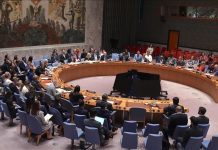Reported by
Faridah N Kulumba
Top leaders of the Chinese business community in Tanzania, pledged to invest in a number of projects, including manufacturing mobile phone handsets.
This was revealed by Janson Huang who led the delegation of Chinese Business Chamber of Tanzania to a meeting with the newly sworn in President of Tanzania Samia Suluhu Hassan at the State House in Dodoma.
A statement from the State House revealed that the Chinese Business Chamber of Tanzania assured President Suluhu that at least 800 Chinese companies were ready to invest in Tanzania under Suluhu’s administration, reported IPP.
Investment ranks in Tanzania
According to the Tanzania Investment Centre, China is the largest investor in Tanzania for years, leading with investments worth $5.963 billion between 1990 and 2017.
The United Kingdom came second with investments valued at $5.54 billion while the United States, Mauritius and India completed the top five list with investments worth $4.7 billion, $4308 billion and $2.2 billion, respectively.
Tanzania Investment Centre executive director Geofrey Mwambe while talking to The Citizen, attributed Chinese top position to aggressiveness of Chinese nationals to look for new investment opportunities outside their country.
Expectations from the new investors
The statement which was signed by Tanzania’s Presidential Communications Director Gerson Msigwa revealed that the investment would help Tanzanians to get China’s expertise by way of giving them opportunities to study in Chinese Universities and colleges, in areas of engineering and tourism through sponsorship by the business people in cooperation with their government.
“The Chinese business leaders expressed interest in investing in mobile handsets making, pharmaceuticals, vehicle assembling and in starting industrial parks,” said the statement signed by Gerson Msigwa presidential Communications director.
Why wish to work with the President Samia administration?
President John Pombe Magufuli’s combative approach to international business, aggressive domestic policies and him being coronavirus sceptical, terrified some foreign investors and drew condemnation from Tanzania’s East African partners.
According to African Business, in 2015 the year President Magufuli
entered the top office, the Foreign Direct Investment (FDI) fell by 43%, but Tanzania’s GDP continued to grow at an average rate of 6% a year.
President Hassan, while addressing the Chinese business leaders, assured them that her administration will work with them so they can realise their investment plans.
She said that she will particularly work on various issues that bottleneck the flow of investments in the country, including work permits, tax delays in payments for the service, red tape as well as ensuring that the country keep taking preventive measures against the Covid-19 pandemic.
Ms Hassan also promised that her government will improve on the business climate so that those who are planning to invest in her country can do so without being antagonised.
Stephen Ouma Bwire Editor at the Workers Eye magazine also General secretary Uganda Journalists Union and business journalist told Africa-Report that Tanzania is a fast growing economy with great potential for oil exploration and development.
He added that Tanzania’s infrastructure needs Chinese modern technology to improve the local sector, construction of roads, factories, upgrading railways and marine division.
Mr Ouma while explaining why Chinese wish to work with the new Tanzania’s administration than the previous one he said, “President Hassan is more liberal, than Magufuli,” said Ouma.








This is encouraging. We wish you the Tanzanian people the best out of investment.